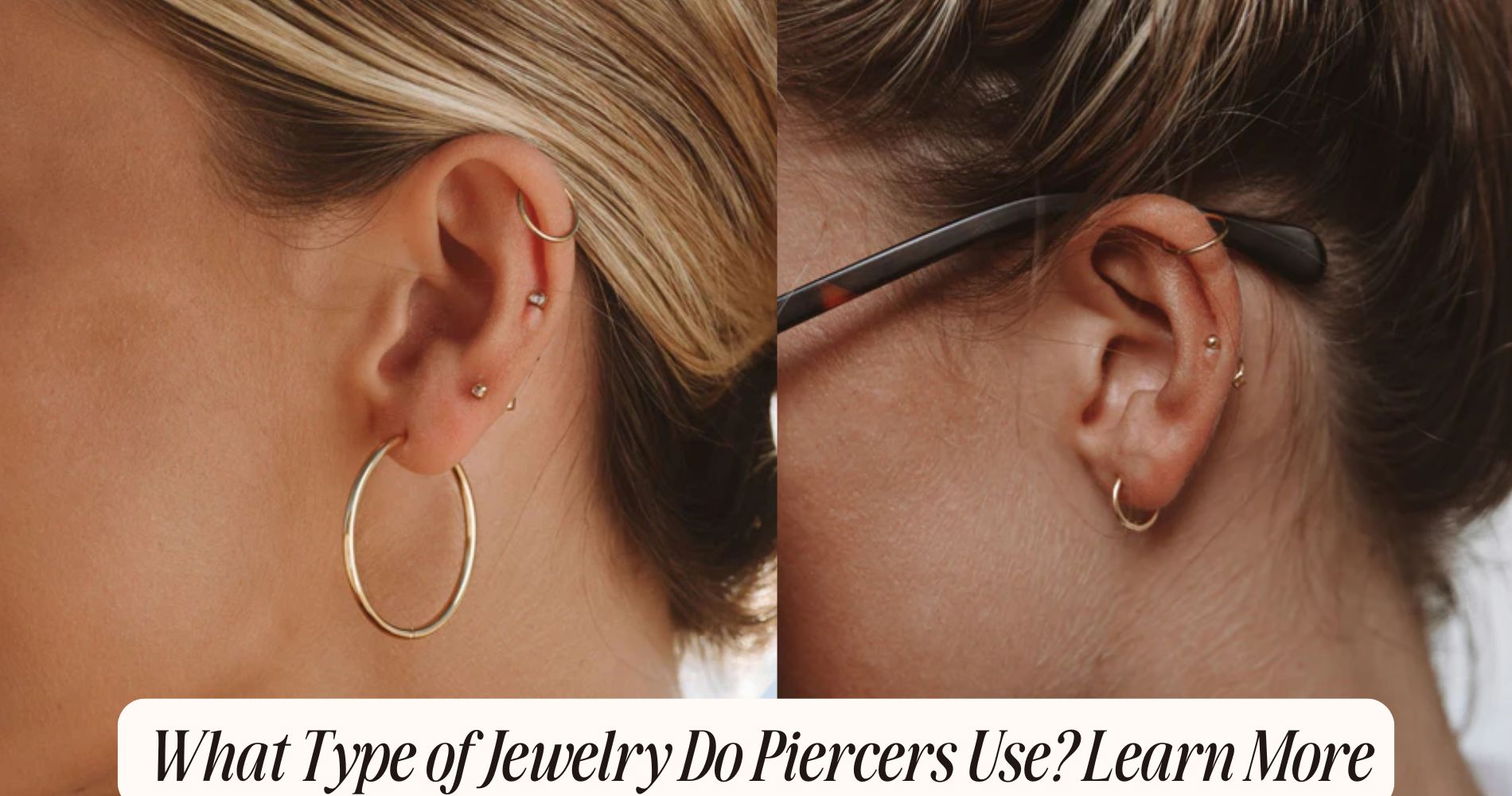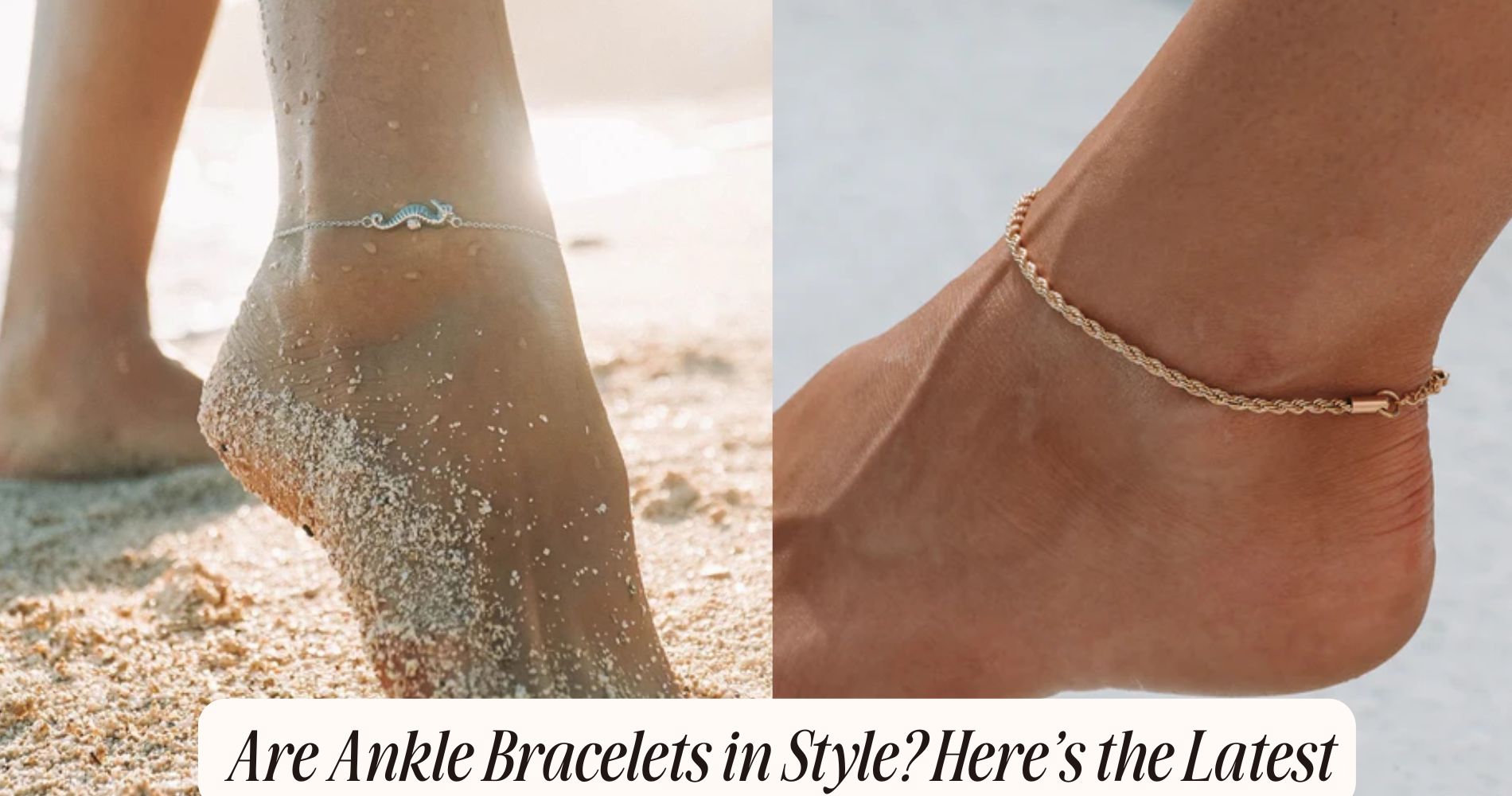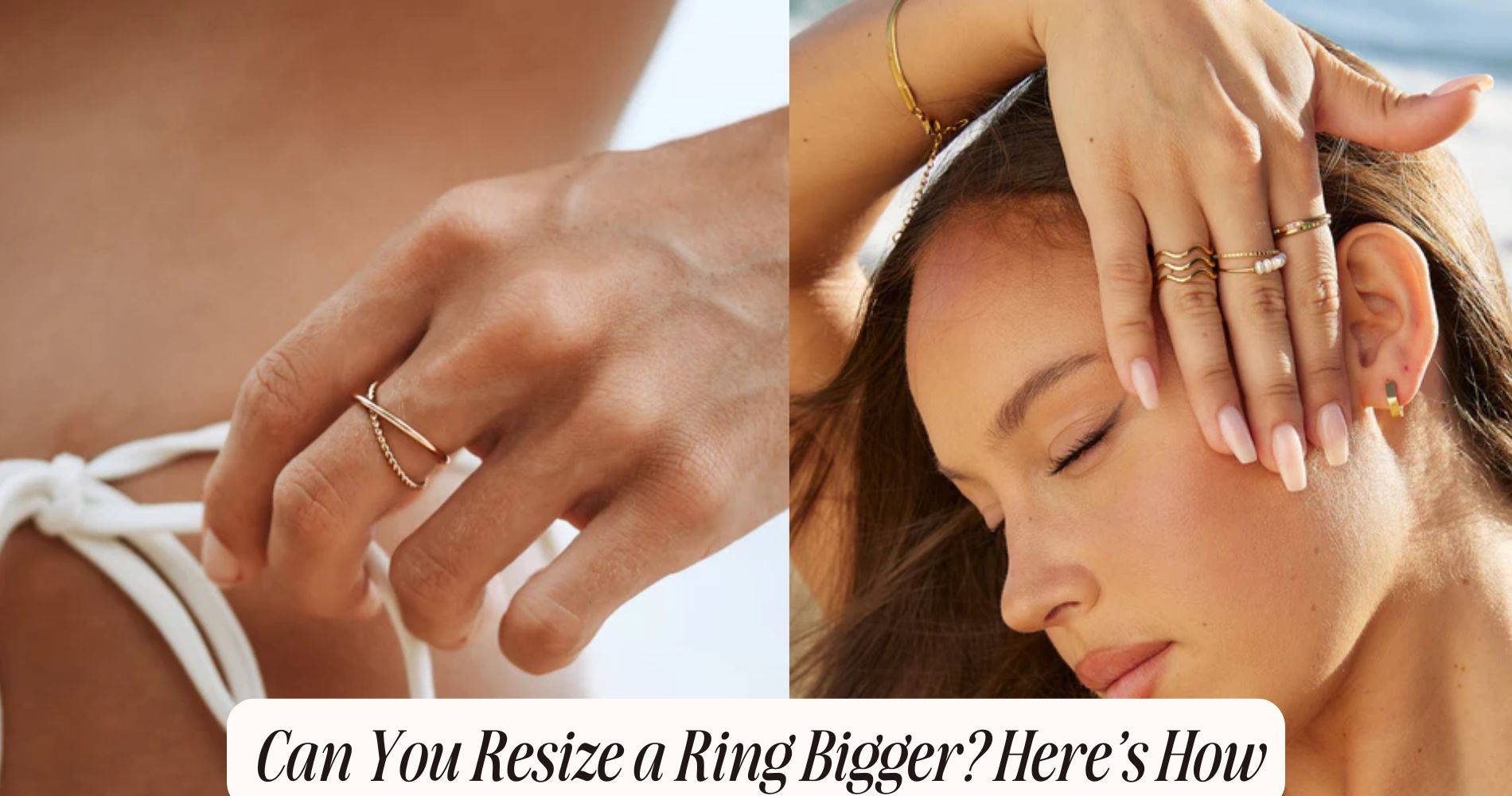
What Type of Jewelry Do Piercers Use? Learn More
What type of jewelry do piercers use? Piercers primarily use jewelry made from biocompatible materials like surgical stainless steel and titanium. These options minimize irritation and promote healing. Surgical stainless steel is known for its strength, corrosion resistance, and hypoallergenic properties, making it perfect for daily wear. Titanium, on the other hand, is lightweight and also hypoallergenic, catering to those with sensitive skin. Gold options, including various karats and colors, can be used but should be nickel-free. When choosing jewelry, consider the gauge, length, and your personal style to guarantee comfort and safety. There's so much more you can discover about piercing jewelry options—explore our Hypoallergenic Jewelry collection for the best choices.
Common Jewelry Materials
When it comes to body piercings, you'll frequently encounter a variety of materials used for jewelry, each with its own unique properties and benefits. One of the most sought-after categories includes biocompatible materials, which are vital for minimizing any adverse reactions.
These materials, such as titanium and surgical stainless steel, are specifically designed to be safe for your body, reducing the risk of irritation or infection.
Another important aspect to take into account is the use of jewelry alloys. Alloys like nickel-free gold or implant-grade stainless steel combine different metals to enhance durability and aesthetic appeal.
These alloys are particularly significant for people with metal sensitivities, as they guarantee a comfortable and safe experience.
Beyond the metals, you'll also find options like glass, acrylic, and silicone, which can be excellent for initial piercings or for those seeking a lighter alternative.
Each of these materials offers distinct advantages, such as flexibility, ease of cleaning, or vibrant colors.
Benefits of Surgical Stainless Steel
Surgical stainless steel is one of the most popular choices for body jewelry, and for good reason. This material boasts impressive surgical benefits, making it ideal for piercings that require a safe and durable option.
It's specially formulated to resist corrosion and tarnishing, ensuring your jewelry stays looking fresh and clean over time.
One of the standout features of surgical stainless steel is its hypoallergenic properties. Many people are sensitive to certain metals, but surgical stainless steel minimizes the risk of allergic reactions, making it suitable for a wide range of skin types.
If you've had issues with irritation in the past, this material can be a game-changer.
Additionally, surgical stainless steel is incredibly strong and resilient. It can withstand daily wear and tear, so you won't have to worry about your jewelry bending or breaking easily.
Plus, it's easy to maintain—just clean it with mild soap and water, and you're good to go.
Advantages of Titanium
Titanium is widely celebrated in the world of body jewelry for its remarkable combination of strength and lightweight comfort. When you choose titanium jewelry, you're investing in titanium durability, which means your pieces can withstand the rigors of daily wear without bending or breaking. This makes it an ideal choice for piercings, especially if you're active or prone to bumps and knocks.
Another significant advantage of titanium is its hypoallergenic properties. If you've ever experienced irritation from other metals, you'll appreciate that titanium is unlikely to cause allergic reactions. This makes it a safe option for those with sensitive skin or metal allergies.
With titanium, you can enjoy your body jewelry without the worry of discomfort or inflammation.
Additionally, titanium comes in a variety of finishes and colors, allowing you to express your style while benefiting from its strength and safety. Whether you're looking for simple studs or intricate designs, titanium is versatile enough to meet your needs.
Gold and Other Options
While titanium is a top choice for many, gold and other materials also hold a special place in the world of body jewelry.
Gold jewelry isn't only aesthetically pleasing but also offers various gold purity options, such as 14k, 18k, and 24k. Higher gold purity means softer metal, which can be more prone to scratching but also provides a luxurious look.
When considering gold, you'll find a variety of jewelry styles, from classic hoops to intricate studs. Many people love the warm tones of yellow gold, while others prefer the modern feel of white or rose gold. Each type can complement your skin tone and personal style, making it essential to choose wisely.
In addition to gold, there are other materials you might explore, such as surgical steel, niobium, and even platinum. These alternatives can offer unique aesthetics and durability.
Remember to check the quality and gold purity when selecting your body jewelry, as this can affect both appearance and comfort. Ultimately, whether you choose gold or another option, you'll be adding a touch of elegance to your piercings.
Factors to Consider When Choosing
Choosing the right body jewelry involves several key factors that can greatly impact both your comfort and style.
First, consider the piercing size. Each piercing has specific dimensions that dictate the gauge and length of the jewelry. If you choose a piece that's too small or too large, it can cause discomfort or even complications.
Next, think about the jewelry styles that resonate with you. From simple studs to elaborate rings, the options are vast. Make sure to select a style that not only fits your aesthetic but also suits your lifestyle. For instance, if you're active or frequently on the go, a more secure style like a captive bead ring might be ideal.
Additionally, materials play a significant role. Opt for hypoallergenic options like titanium or surgical stainless steel, especially if you have sensitive skin.
Finally, take your healing process into account; some styles may be better suited for healing piercings than others.
Frequently Asked Questions
Can I Use Costume Jewelry for Piercings?
You shouldn't use costume jewelry for piercings. It often contains unsafe materials that can irritate your skin. Instead, choose piercing jewelry made from safe materials like surgical steel, titanium, or gold for maximum safety and comfort.
What Is the Best Jewelry for Sensitive Skin?
For sensitive skin, the best materials are surgical stainless steel, titanium, or niobium. These options guarantee excellent skin compatibility, reducing irritation and allergic reactions. Always choose high-quality pieces to keep your skin healthy and comfortable.
How Often Should I Change My Piercing Jewelry?
You should change your piercing jewelry after the healing process is complete, typically 6-12 weeks. Choose high-quality jewelry materials like titanium or surgical steel to minimize irritation and promote healthy healing while switching out the jewelry.
Are There Any Allergic Reactions to Jewelry Materials?
Yes, allergic reactions can occur with certain jewelry materials. If you have nickel allergies or metal sensitivities, opt for hypoallergenic options like titanium or surgical stainless steel to avoid irritation and discomfort. Always prioritize your skin's health.
Can I Wear Jewelry While Swimming or Exercising?
When swimming or exercising, it's best to prioritize safety. Remove jewelry to prevent potential injuries or irritation. Taking these precautions guarantees a more enjoyable experience, allowing you to focus on your activity without distractions.
Conclusion
When selecting jewelry for your piercings, it's essential to contemplate materials like surgical stainless steel, titanium, and gold based on their benefits and your personal preferences. Each option offers unique advantages, from hypoallergenic properties to aesthetic appeal. Always prioritize quality and safety to guarantee a comfortable healing process. By understanding these factors, you can make an informed decision that not only complements your style but also promotes your well-being. Choose wisely to enjoy your jewelry for years to come!























Leave a comment
This site is protected by hCaptcha and the hCaptcha Privacy Policy and Terms of Service apply.